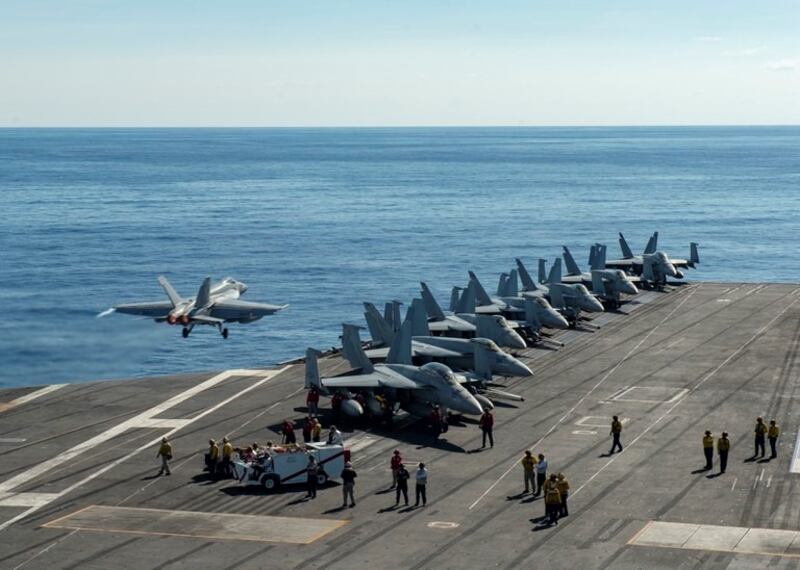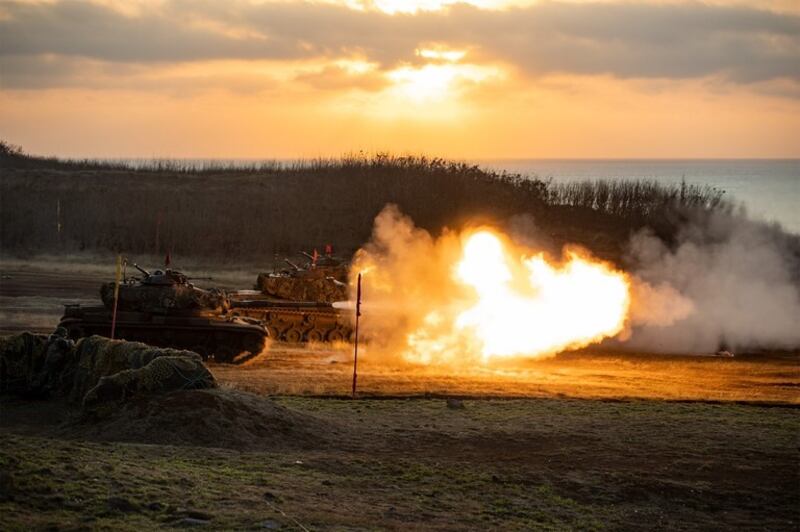A top U.S. general issued a warning to his staff that a war with China over Taiwan may break out in two years, in what some Taiwanese analysts call a “worst-case scenario” that so far remains unlikely.
In a memo dated Feb. 1 but sent Friday and leaked on social media, U.S. Air Force Gen. Mike Minihan ordered officers under his command to prepare for "the next fight."
“I hope I am wrong. My gut tells me we will fight in 2025,” wrote Minihan, head of Air Mobility Command (AMC) which oversees transport and refueling for the Air Force.
“Xi secured his third term and set his war council in October 2022,” Minihan wrote, referring to Chinese President Xi Jinping.
“Taiwan’s presidential elections are in 2024 and will offer Xi a reason. United States’ presidential elections are in 2024 and will offer Xi a distracted America. Xi’s team, reason and opportunity are all aligned for 2025,” he wrote.
Minihan ordered Air Force commanders to make efforts to build “a fortified, ready, integrated, and agile Joint Force Maneuver Team ready to fight and win inside the First Island Chain.”
First Island is a chain of main archipelagos surrounding the East Asian continental mainland, including Japan and Taiwan.
‘Aim for the head’
Minihan became AMC commander in 2021. Before that, he served as the deputy commander of Indo-Pacific Command from September 2019 to August 2021.
The general’s internal memorandum urged troops to hone their marksmanship during February and “fire a clip into a 7-meter target with the full understanding that unrepentant lethality matters most.”
“Aim for the head,” it said.
Minihan, who commands about 50,000 personnel and 500 planes, said that his “expectations are high and these orders are not up for negotiation.”
He requested that the force’s commanders report to him on their preparation by Feb. 28.
The memo was confirmed by Defense Department officials, who also said Minihan’s comments “are not representative of the department’s view on China.”

U.S. military leaders have been forecasting different timelines for a possible Chinese invasion of Taiwan.
U.S. Asia-Pacific commander Adm. Philip Davidson told Congress in 2021 that a Taiwan invasion would take place by 2027, the year the Chinese People’s Liberation Army celebrates its centenary and Xi comes to the end of his third term.
In October 2022, Chief of Naval Operations Adm. Michael Gilday said he “can’t rule it out” that a conflict could occur as soon as 2023.
Meanwhile, U.S. Defense Secretary Lloyd Austin said last month that there's "some very provocative behavior on the part of China's forces and their attempt to reestablish a new normal."
“But whether or not that means that an invasion is imminent, I seriously doubt that,” Austin said.
Worst-case scenario
“The timings are different, but they all point to the consistency of the U.S. military’s view of Beijing’s use of force,” said Su Tzu-yun, research fellow at the Institute for National Defense and Strategy Research (INDSR), a government think tank.
“This also shows the readiness of U.S. military leaders to prepare for war, demonstrating the U.S. commitment and will to defend Taiwan,” said Su, who heads INDSR’s Division of Defense Strategy and Resources.
“But Taiwan will take responsibility for defending its own democracy,” he said.

Beijing sees self-ruled Taiwan as an inalienable part of China and vows to take it back, by force if necessary.
In recent months China has intensified military drills around Taiwan, as well as incursions into the island's air defense zone. Yet Taiwanese analysts say they think the probability of an imminent invasion is low.
“Military professionals often take worse case scenarios when assessing the challenges they might encounter,” said Alexander Huang, professor at Tamkang University in Taipei and former deputy minister at Taiwan’s Mainland Affairs Council.
“2025 marks the 10th year since Xi initiated his ‘deepening defense and military reform’ in 2015,” said Huang, adding that on this occasion the Chinese military may “conduct theater-level military exercises to verify training outcomes.”
“There is an ‘AIP principle’ – anything is possible. But politically we’ve yet to see the absolute necessity for a kinetic war over Taiwan between the two nuclear powers so far,” the professor said, warning that “escalation control is a serious and difficult task” for all parties involved.
Radio Free Asia, a news service affiliated with BenarNews, produced this report.
